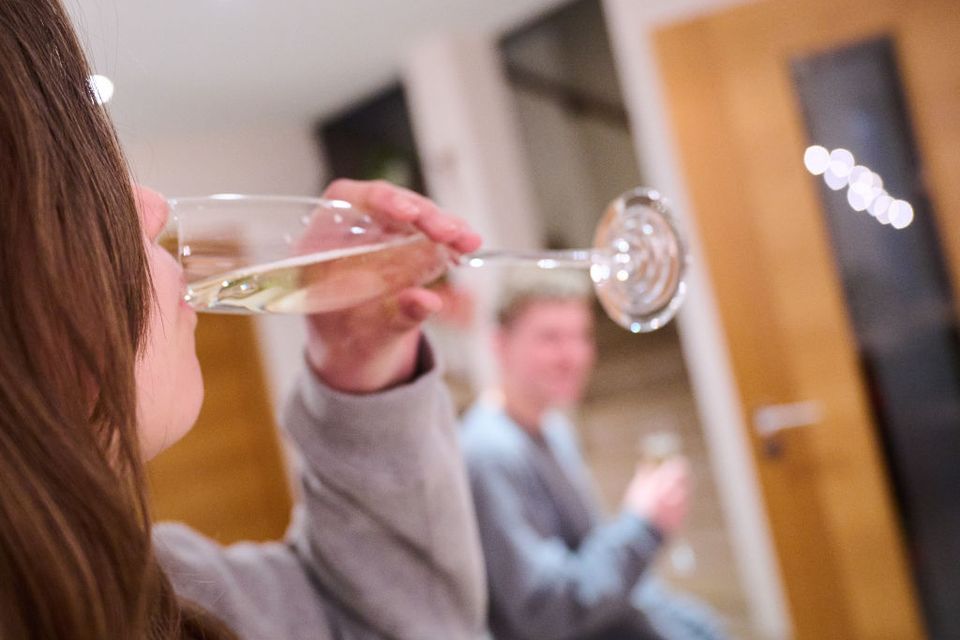Health
Report Reveals Rising Youth Alcohol Consumption Amid Marketing Gaps

A recent report highlights significant concerns regarding youth alcohol consumption in Ireland, revealing that the percentage of drinkers aged 15 to 24 has increased from 66% in 2018 to 75% in 2024. The study, titled “Youth Drinking in Ireland: What’s the Real Picture?”, published by Alcohol Action Ireland, underscores a troubling trend where young people are exposed to alcohol marketing that potentially encourages early initiation and risky drinking behaviors.
The report identifies a loophole in legislation that permits companies to use zero-alcohol products with branding identical to their alcoholic counterparts. This practice circumvents advertising restrictions established under the Public Health (Alcohol) Act (2018). According to the report, the normalization of drinking among youth is exacerbated by these marketing strategies, which are prevalent, particularly online.
Dr. Sheila Gilheany, Chief Executive of Alcohol Action Ireland, stated, “In recent years, a narrative has emerged that youth drinking is perhaps no longer an issue in Ireland. However, a close analysis of the facts indicates that alcohol remains Ireland’s largest drug problem both for young people and the wider population.” She emphasized the health implications of this trend, which include rising levels of alcohol-related hospitalizations among youth and a concerning number of fatalities involving young drivers under the influence.
The report further reveals that approximately 50,000 children begin drinking alcohol annually in Ireland, a statistic that highlights the concerning prevalence of underage drinking. While the average age of initiation has risen slightly—from 15.6 years in 2002 to 16.6 years in 2019—once young people start drinking, they often engage in high-risk behaviors. Notably, 64% of young drinkers reported regular binge drinking, and one in three has an alcohol use disorder.
The report indicates that while there was a decline in youth drinking from the mid-2000s to the mid-2010s, this trend reversed after 2015. Young individuals aged 15 to 24 now consume alcohol at rates above the national average of 73%.
Prof. Bobby Smyth from the Department of Public Health and Primary Care at Trinity College Dublin noted, “We’ve seen some evidence of a slight delay in the onset of drinking by Irish children, but the pattern of drinking tends to be high risk once drinking does start.” He pointed out that many parents still allow underage drinking, despite evidence showing its harmful effects.
The report emphasizes that the pervasive exposure to alcohol marketing plays a crucial role in the increasing rates of youth drinking. The advertising landscape in Ireland is dominated by alcohol, with annual marketing expenditures conservatively estimated at €115 million. The normalization of alcohol consumption among young people raises significant concerns regarding their health and well-being.
In light of these findings, Dr. Gilheany calls for urgent action to address the systemic issues that allow for such marketing practices. She states, “Fundamentally, this is a breach of children’s rights under the United Nations Convention on the Rights of the Child.”
As Ireland continues to grapple with the complexities of youth alcohol consumption, this report serves as a critical reminder of the need for comprehensive strategies to protect young individuals from the influence of alcohol marketing and to foster healthier drinking habits.
-

 Top Stories3 months ago
Top Stories3 months agoTributes Surge for 9-Year-Old Leon Briody After Cancer Battle
-

 Entertainment4 months ago
Entertainment4 months agoAimee Osbourne Joins Family for Emotional Tribute to Ozzy
-

 Politics4 months ago
Politics4 months agoDanny Healy-Rae Considers Complaint After Altercation with Garda
-

 Top Stories4 months ago
Top Stories4 months agoIreland Enjoys Summer Heat as Hurricane Erin Approaches Atlantic
-

 World5 months ago
World5 months agoHawaii Commemorates 80 Years Since Hiroshima Bombing with Ceremony
-

 Top Stories3 months ago
Top Stories3 months agoNewcastle West Woman Patricia Foley Found Safe After Urgent Search
-

 Top Stories5 months ago
Top Stories5 months agoFianna Fáil TDs Urgently Consider Maire Geoghegan-Quinn for Presidency
-

 World5 months ago
World5 months agoCouple Convicted of Murdering Two-Year-Old Grandson in Wales
-

 World5 months ago
World5 months agoGaza Aid Distribution Tragedy: 20 Killed Amid Ongoing Violence
-

 World5 months ago
World5 months agoAristocrat Constance Marten and Partner Convicted of Infant Murder
-

 Top Stories4 months ago
Top Stories4 months agoClimbing Errigal: A Must-Do Summer Adventure in Donegal
-

 Top Stories4 months ago
Top Stories4 months agoHike Donegal’s Errigal Mountain NOW for Unforgettable Summer Views









